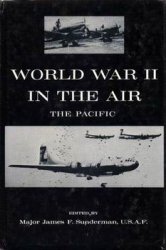In 1761 a famous legal case came before the Supreme Court of Massachusetts challenging the general search warrants—writs of assistance—issued to British-appointed customs officials. This case is often cited as the opening salvo in the imperial crisis that led to the American Revolution. More than half a century later, JoHN Adams, who watched the court case and was entranced with the brilliant oratory of James Otis, Jr., attacking the writs, proclaimed “Then and there the Child of Independence was born.”
Writs of assistance had long been issued in both the colonies and in Great Britain as an efficient and effective means of customs enforcement. These writs allowed a customs official to search property without obtaining a specific court order. Without this power, it would be possible for smugglers to move goods while the customs official searched for a judge to issue a specific search warrant. There is little question that within the confines of Anglo-American law as practiced in the 18th century the writs of assistance were legal. However, they were irksome to many Boston merchants who made money smuggling and trading with the enemy during the French and Indian War (175463). The ascension of King George III to the throne in England in 1760 compelled the Massachusetts Supreme Court, headed by Thomas Hutchinson, to reissue the writs. Whenever a new monarch became king, standard legal orders had to be reissued.
Massachusetts politics was at the time fiercely contested between a faction led by the Otis family, on one side, and the Hutchinson family, on the other. James Otis, Jr., seized the opportunity of the reissuing of the writs to embarrass Thomas Hutchinson and to gain both merchant and popular support. Although law and precedence were on the side of the writs and Hutchinson, Otis made his case by applying to a higher ideal. He declared that the writ “is against the fundamental principles of law. The privilege of house. A man who is quiet is as secure in his house as a prince in his castle.” Otis turned this basic assertion into a challenge to Parliament by contending that “An act against the constitution is void, an act against natural equity is void.” Otis thus put the constitution, nature, and equity, above Parliament and precedent. The implications of this position, as Adams later stated, were revolutionary. In 1761, however, few were willing to pursue those implications since the British constitution was little more than a series of laws and unwritten precedents, and no one knew for sure what nature and equity would dictate. In the next two decades colonial and revolutionary Americans would return to this challenge and explore the meaning of the principles articulated by Otis. Hutchinson and the four other judges on the Supreme Court, of course, decided that the writs of assistance were legal.
See also resistance movement.
Further reading: Bernard Bailyn, The Ordeal of Thomas Hutchinson (Cambridge, Mass.: Harvard University Press, 1974); John J. Waters, The Otis Family in Provincial and Revolutionary Massachusetts (Chapel Hill: University of North Carolina Press, 1968).




 World History
World History









